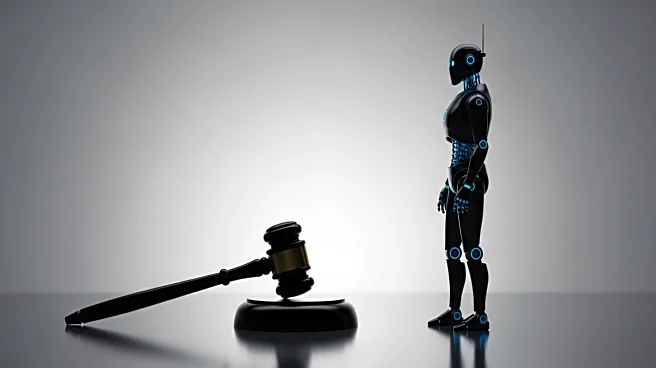What's Happening?
Judge William Alsup has rejected a proposed $1.5 billion settlement by Anthropic in a piracy lawsuit filed by authors. The lawsuit involves approximately 500,000 authors who claim Anthropic used pirated copies of their works to train its large language models. The settlement, which would have provided $3,000 per work to the authors, was deemed incomplete by the judge. Alsup expressed concerns that the settlement was being forced upon the authors without adequate information. He highlighted the lack of a complete list of works involved, the authors affected, and the process for notifying class members. The judge has mandated that the lawyers provide a comprehensive notice to the class members and design a claim form allowing them to opt in or out. Additionally, the settlement must ensure Anthropic cannot face future lawsuits for the same issue.
Why It's Important?
The rejection of this settlement is significant as it underscores the complexities involved in class action lawsuits, particularly those related to intellectual property and AI. The case highlights the challenges authors face in protecting their works from unauthorized use by AI companies. The judge's decision emphasizes the need for transparency and fairness in settlements, ensuring that affected parties are adequately informed and compensated. This case could set a precedent for future copyright disputes involving AI, impacting how companies negotiate settlements and address claims of piracy. Authors stand to gain from a more equitable settlement process, while AI companies may face increased scrutiny and legal challenges.
What's Next?
Judge Alsup has given the lawyers until September 15 to submit a final list of works involved in the lawsuit. The court will examine and approve the works list, class members list, and claim form by October 10 before granting preliminary approval of the settlement. This timeline indicates that the parties involved must work swiftly to address the judge's concerns. The outcome of this case could influence future legal strategies for both authors and AI companies, potentially leading to more rigorous standards for settlements in copyright disputes.









